Doctor Appointment Letter Samples
-
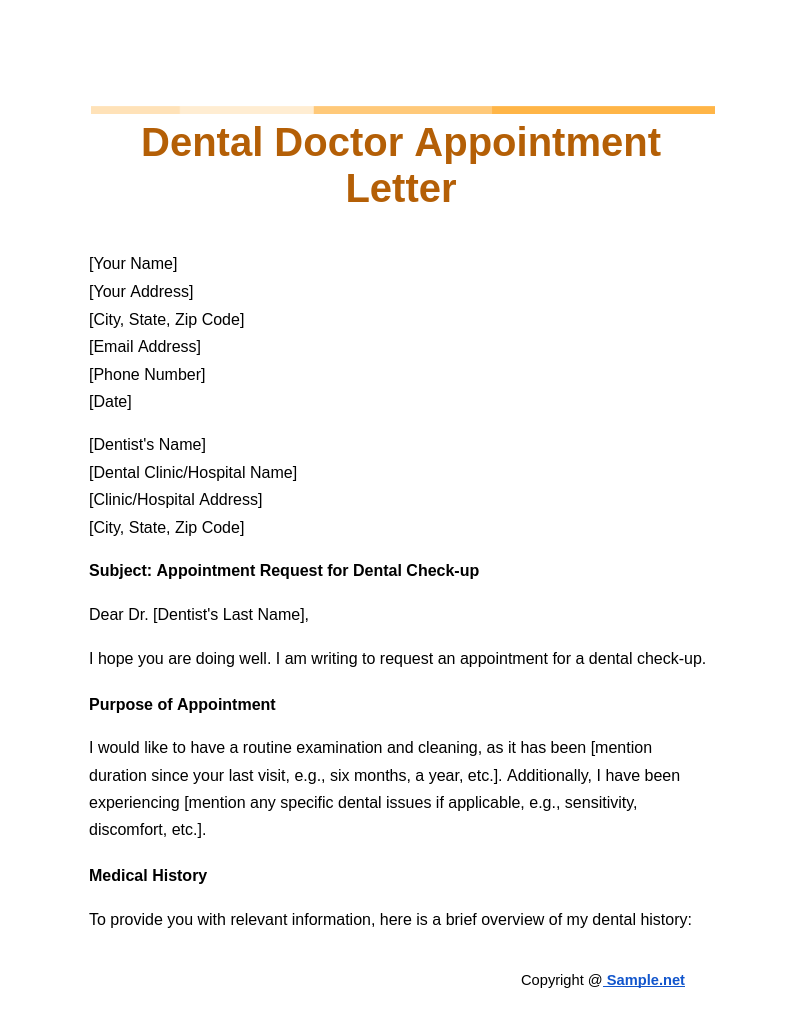
Dental Doctor Appointment Letter
download now -
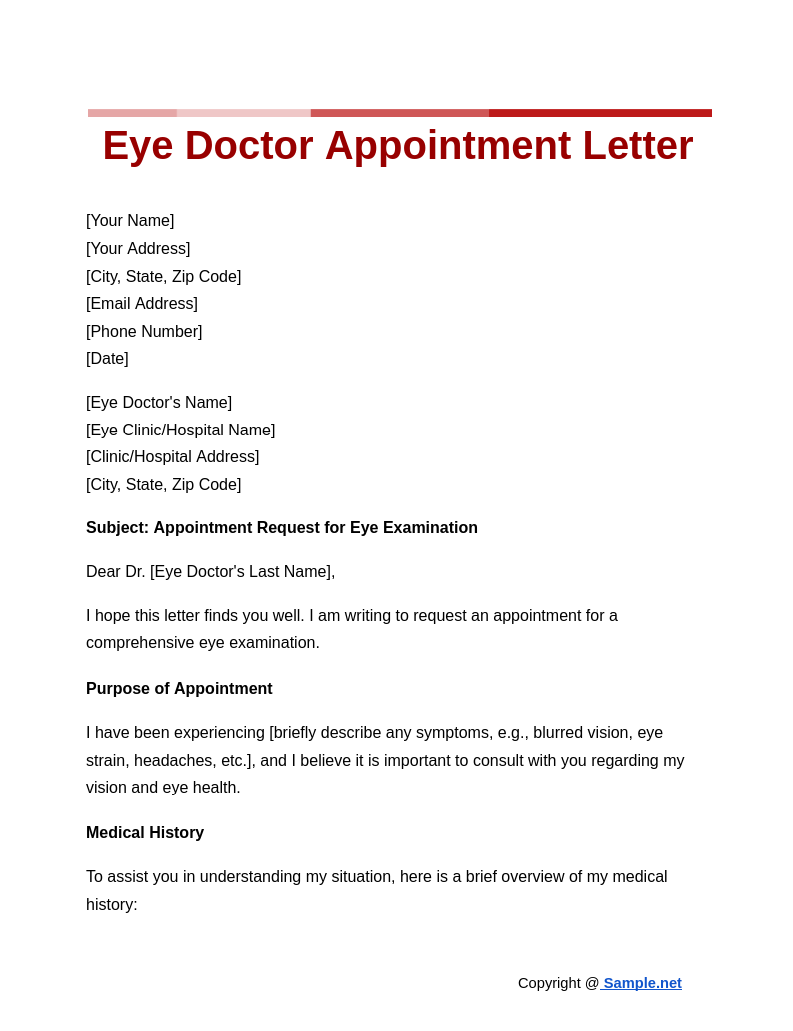
Eye Doctor Appointment Letter
download now -
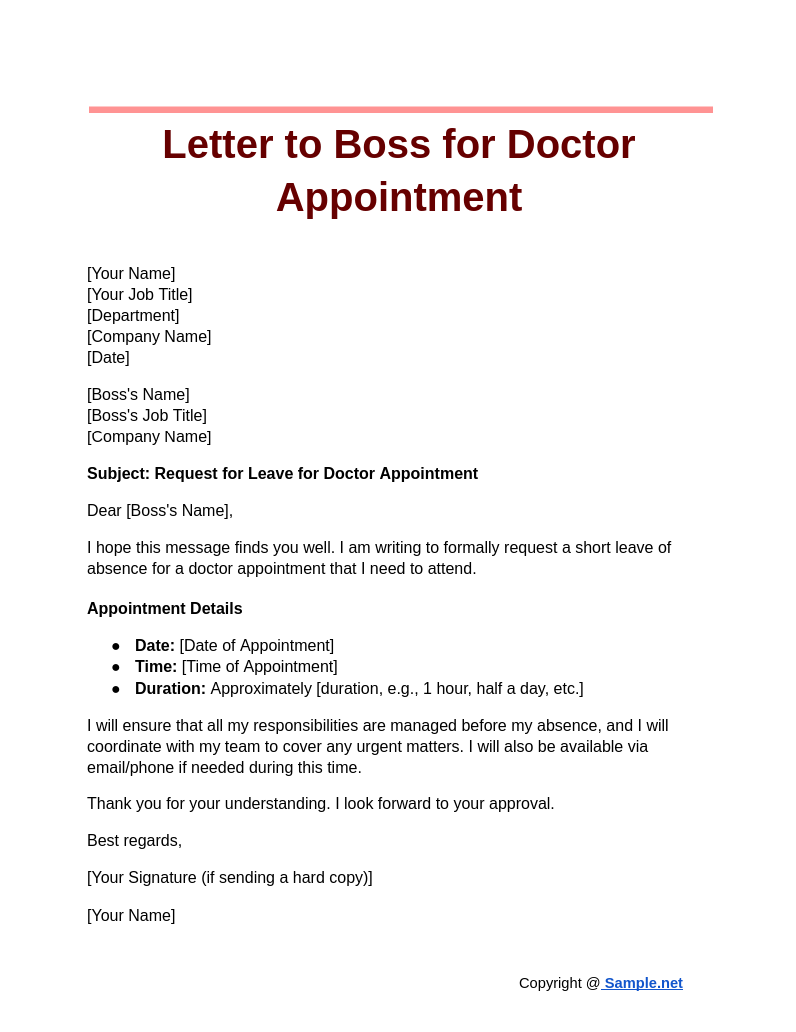
Letter to Boss for Doctor Appointment
download now -
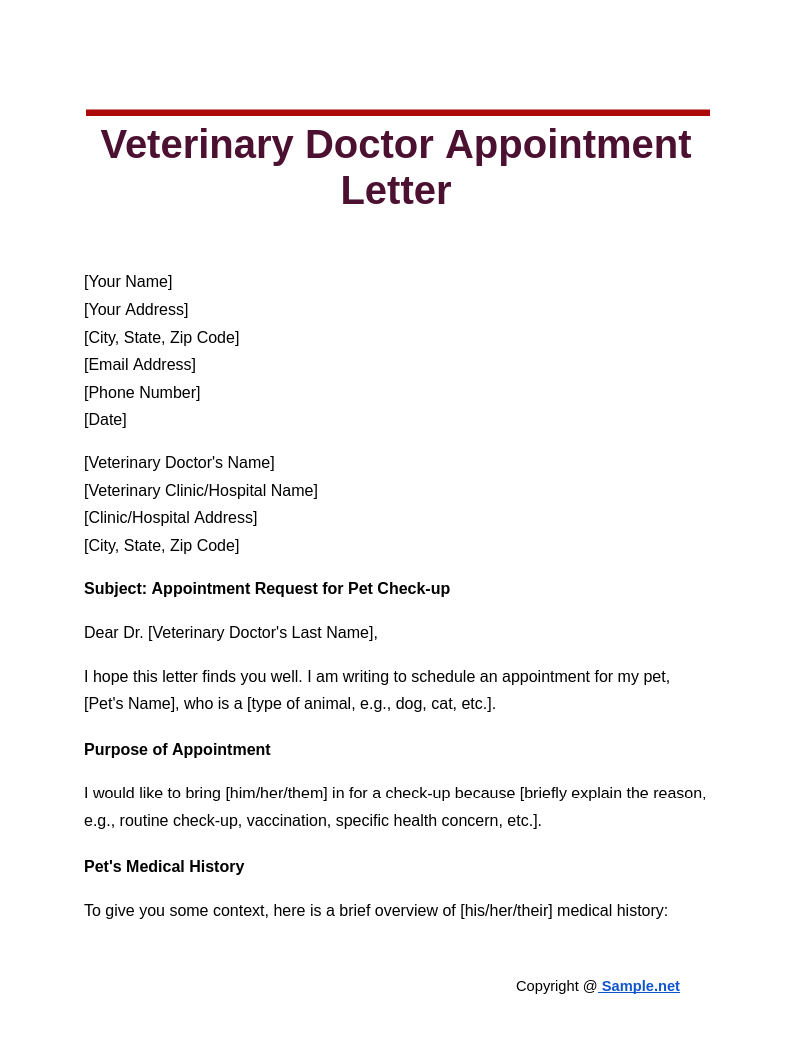
Veterinary Doctor Appointment Letter
download now -
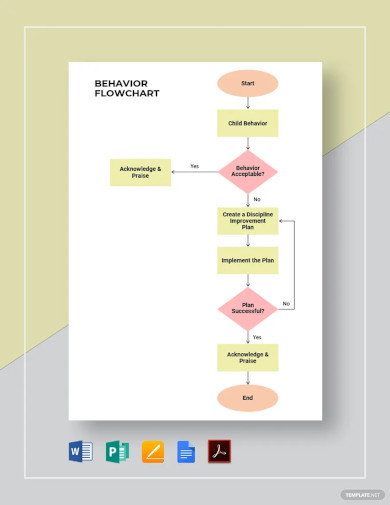
Doctor Appointment Letter to Patient Template
download now -

Doctor Appointment Letter Template
download now -
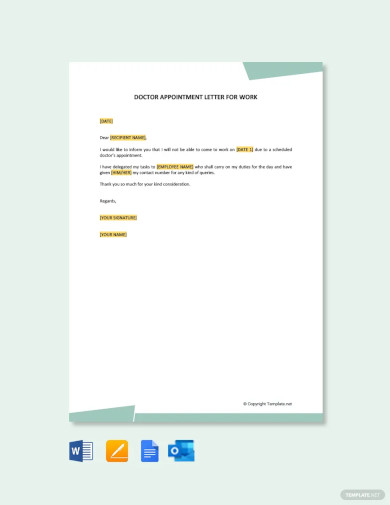
Free Doctor Appointment Letter For Work Template
download now -
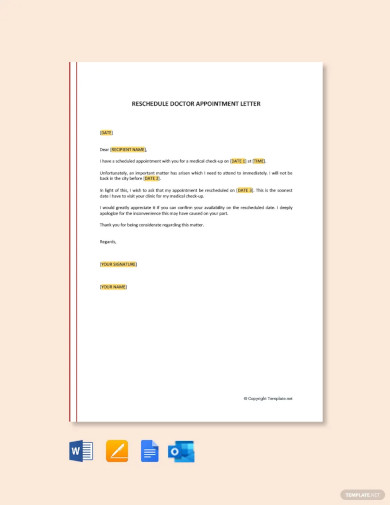
Reschedule Doctor Appointment Letter Template
download now -
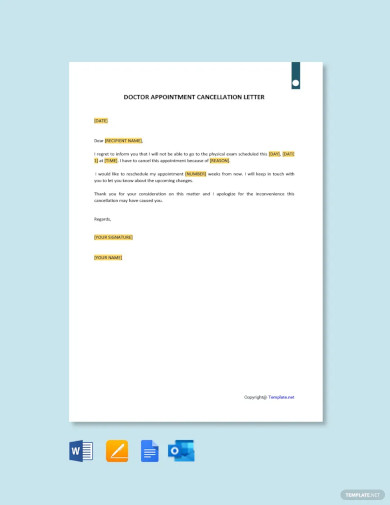
Doctor Appointment Cancellation Letter Template
download now -
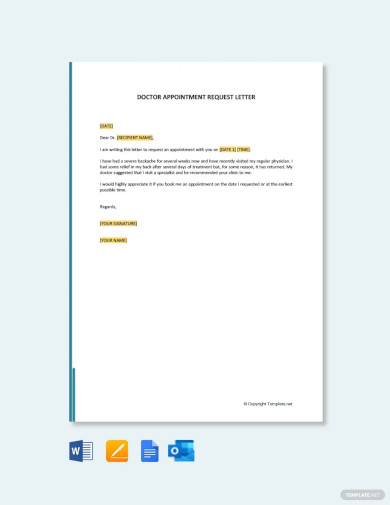
Doctor Appointment Request Letter Template
download now -
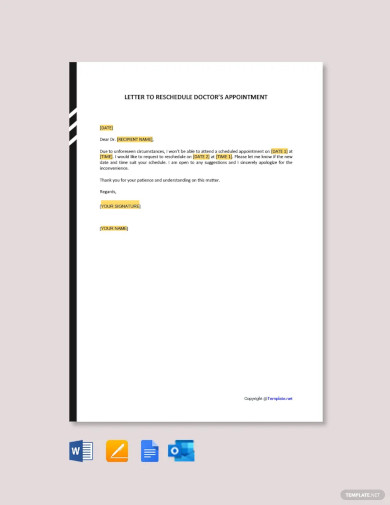
Free Letter to Reschedule Doctor’s Appointment Template
download now -
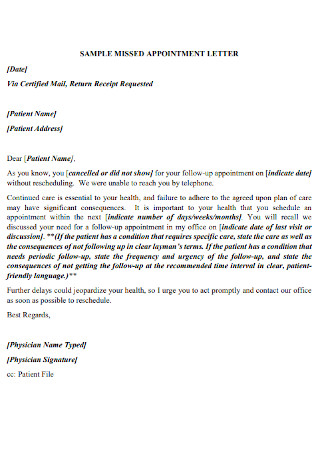
Doctor Mixed Confirmation Appointment Letter
download now -
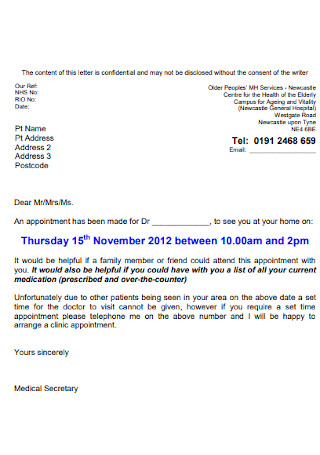
Sample Request for Doctor Appointment Letter
download now -
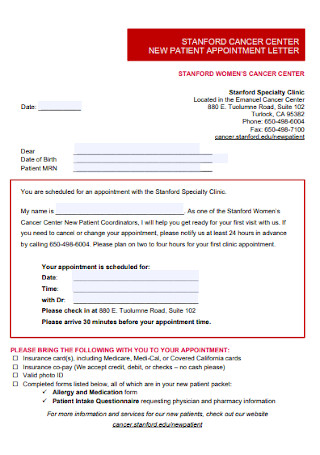
Medical Doctor Appointment Letter
download now -
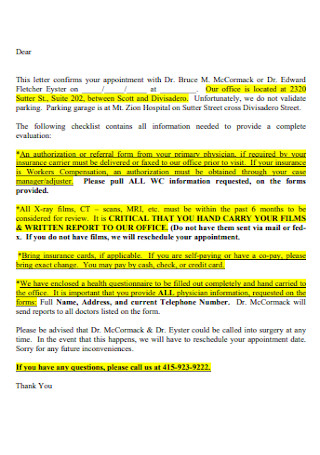
Basic Doctor Appointment Letter Format
download now -
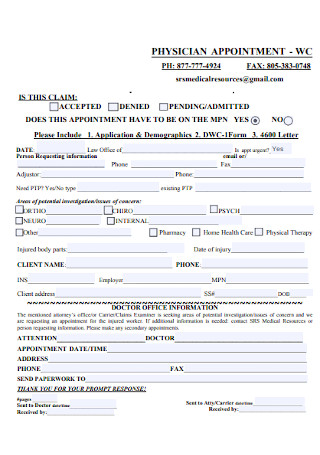
Referral Doctor Appointment Letter
download now -
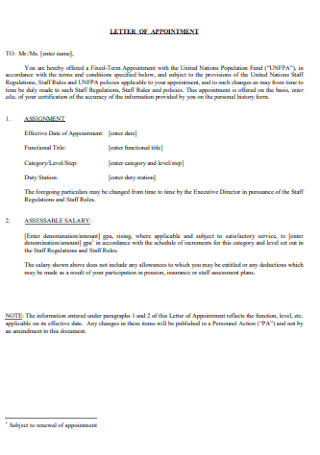
Formal Employee Doctor Appointment Letter
download now -
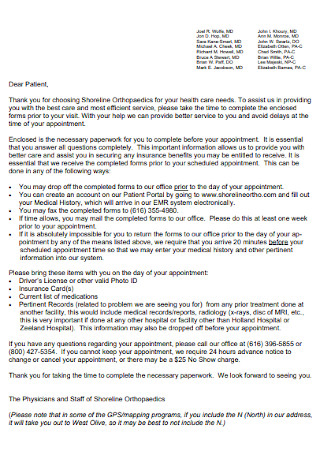
Professional Doctor Healthcare Appointment Letter
download now -
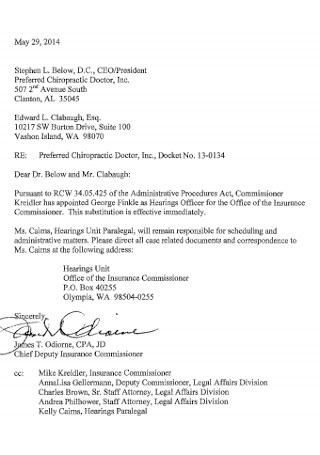
Physician Doctor Office Appointment Letter
download now -
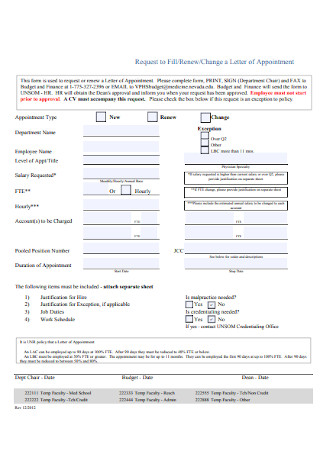
Reschedule School of Medicine Letter of Appointment
download now -
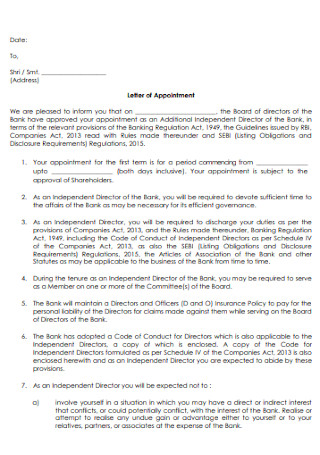
Standard Excuse Doctor Appointment Letter
download now -
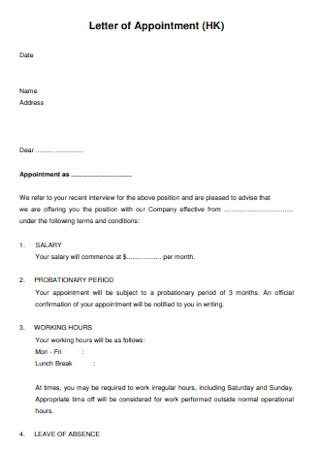
Doctor Schedule Letter of Appointment
download now -
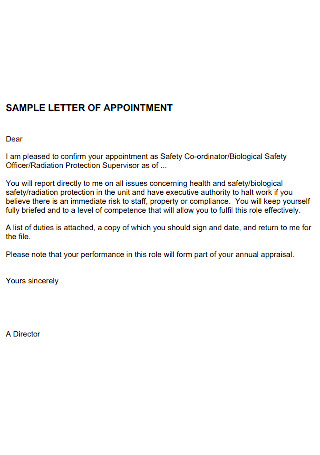
Doctor’s Appointment Letter for Child
download now -
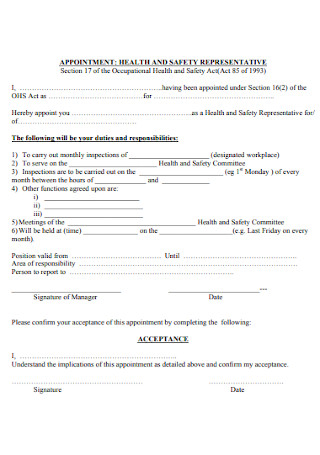
Doctor Absence Appointment Letter
download now -
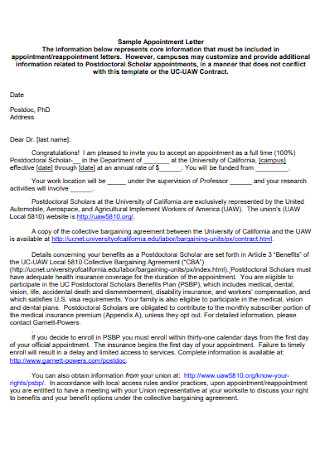
Sample Doctor Consultant Appointment Letter Example
download now -
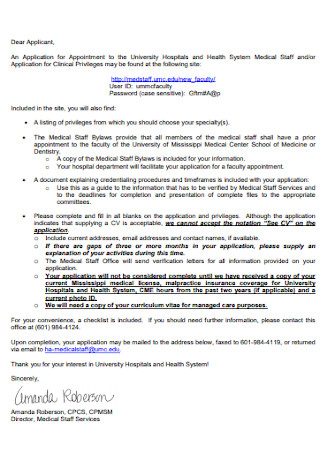
Doctor Student Appointment Letter
download now -
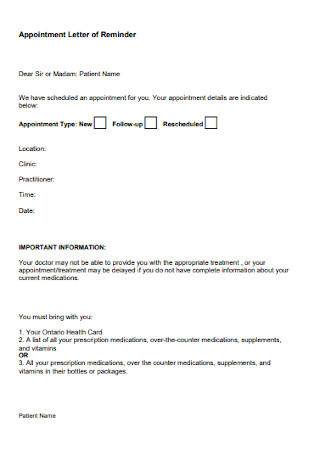
Patient Appointment Letter of Reminder
download now -
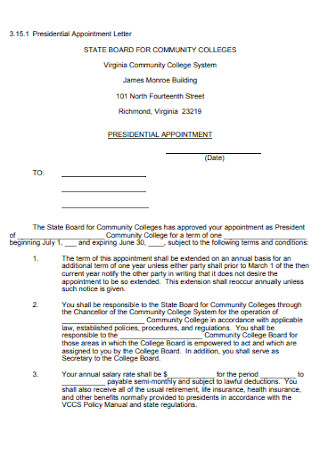
Doctor Medical Representative Appointment Letter
download now -
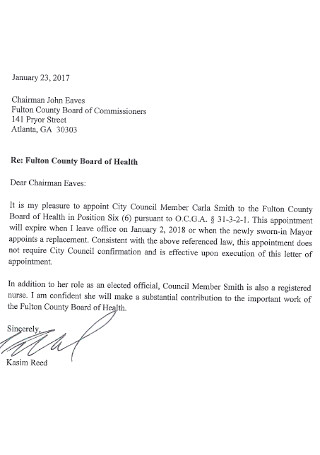
Doctor Surgery Appointment Letter
download now -
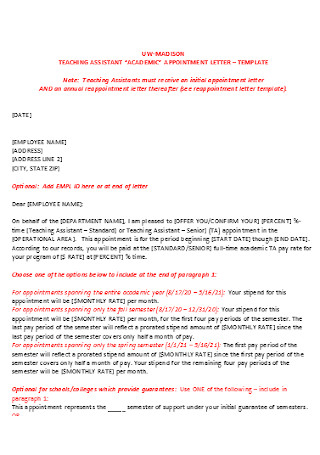
Doctor Work Appointment Letter
download now -
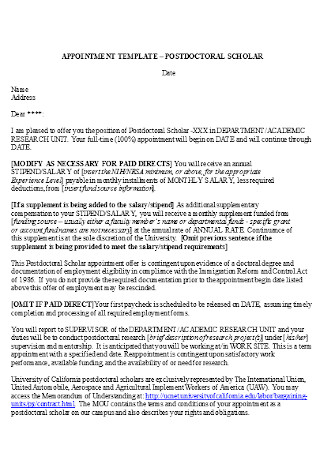
Doctor Due Appointment Letter
download now
FREE Doctor Appointment Letter s to Download
Doctor Appointment Letter Format
Doctor Appointment Letter Samples
What is a Doctor Appointment Letter?
Why You Should Come Knocking at Your Physician’s Office
Other Relevant Medical Documents
How to Make a Doctor Appointment Letter
FAQs
What time is ideal for making a doctor’s appointment?
How many hours before the appointment is it reasonable to make a cancellation?
Can you use your doctor appointment letter to get out of work?
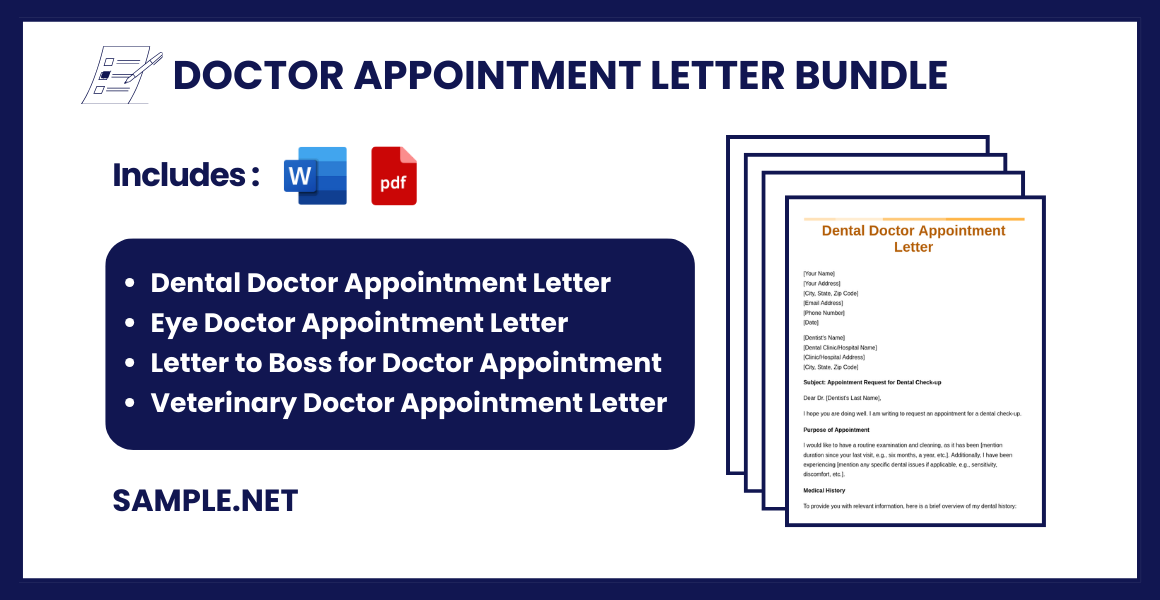
Download Doctor Appointment Letter Bundle
Doctor Appointment Letter Format
[Your Name]
[Your Address]
[City, State, Zip Code]
[Email Address]
[Phone Number]
[Date]
[Doctor’s Name]
[Doctor’s Clinic/Hospital Name]
[Clinic/Hospital Address]
[City, State, Zip Code]
Subject: Appointment Request
Dear Dr. [Doctor’s Last Name],
I hope this letter finds you in good health. I am writing to request an appointment for a consultation regarding my health concerns.
Purpose of Appointment
I have been experiencing [briefly explain your symptoms or concerns, e.g., persistent headaches, recurring pain, or any other health issue]. I believe it is important to seek your professional advice and guidance regarding this matter.
Medical History
To provide you with a better understanding of my health situation, here is a brief summary of my medical history:
- [Condition 1: Brief description, treatment received, and any relevant dates]
- [Condition 2: Brief description, treatment received, and any relevant dates]
- [Current medications: List any medications you are currently taking]
Preferred Appointment Dates
I would appreciate the opportunity to meet with you at your earliest convenience. Here are my preferred dates and times for the appointment:
- First choice: [Date and Time]
- Second choice: [Date and Time]
- Third choice: [Date and Time]
If none of these times are suitable, please let me know your available slots, and I will do my best to accommodate.
Additional Information
Please inform me if there are any specific preparations I need to undertake before the appointment, such as fasting or bringing previous medical records.
Thank you very much for your attention to this matter. I look forward to your prompt response, and I hope to see you soon.
Warm regards,
[Your Signature (if sending a hard copy)]
[Your Name]
What is a Doctor Appointment Letter?
A Doctor Appointment Letter is a formal document confirming a scheduled medical consultation between a patient and a healthcare provider. You can also see more on Meeting Appointment Letters.
In the age where a simple text and call have overshadowed well-structured and full-length letters, why are letters still relevant when organizing appointments? In general, writing business letters might demand more effort, but they serve a ton of purposes. Even when there are faster and more convenient means, business letters are beneficial as they allow for the transfer of more accurate data because they’re composed deliberately instead of a quick message sending. They’re formal, and they can be stored for reliable record keeping. Surely, a few word count won’t matter when dealing with important matters on health services.
Because doctor appointment letters are multi-purpose, they’re a valuable communication tool between patients and their doctor’s office. It’s a good way not only to build rapport but also to establish a relationship. This is essential, especially if you’re seeing a specialist because several appointments have to be made. Strengthening your ties with a health professional is important for a reason as clear as the sun: your health matters. Whether you’re a patient or someone from the doctor’s office and you’re writing an appointment sample letter, here are some details that you might need to include:
1. Patient’s details
2. Doctor’s name
3. Appointment schedule (include a previous schedule if the letter is for a missed appointment or you want to request for a reschedule)
4. Brief description of your letter’s purpose (the reason for the appointment, reasons for rescheduling or missing the check-up, etc.)
5. Needed documents
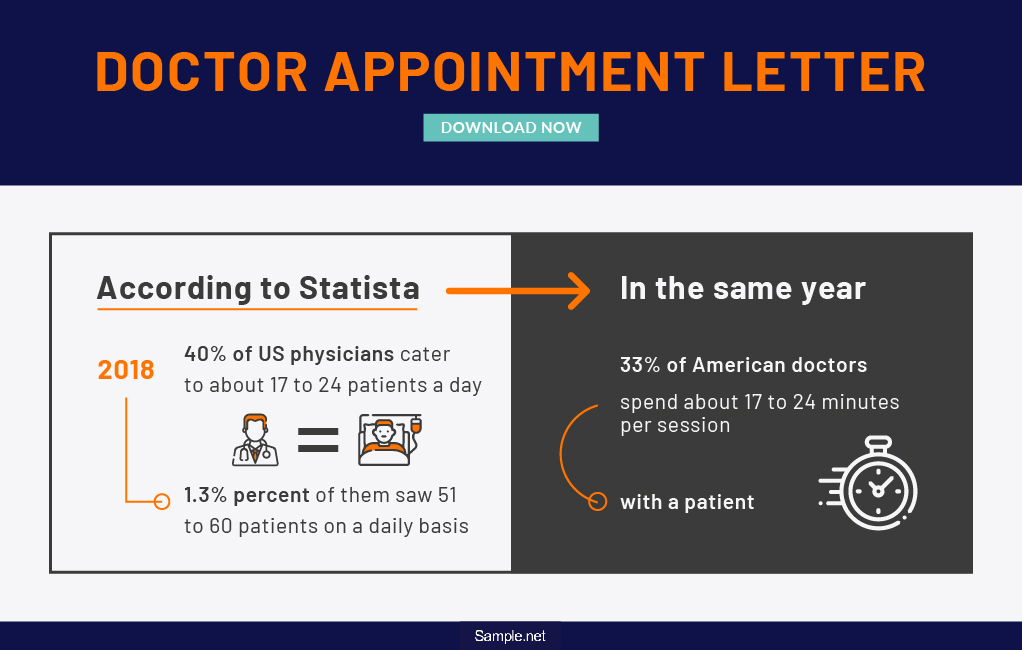
Why You Should Come Knocking at Your Physician’s Office
According to the National Health Interview Survey (NHIS), 84.3% percent of adults and 93.6% of children contacted a health professional in 2018. This comes with no surprise because the United States dote on healthcare more than any other country worldwide. Given their emphasis on a more favorable health care system and insurances, health is clearly a top priority.
A lot of people fear a doctor’s visit because a single laboratory test records and procedures could result in anemia, high sugar level, or something threatening, such as the “Big C.” They think knowledge is scary because you’re only healthy until you know you’re not. If you’re a healthy adult, professionals recommend hospital appointments or stopping by for a quick routine check once in one to two years. That frequency goes up if you have health conditions that need a follow-up. Here are some reasons why you should see a doctor even when you’re as fit as a marathoner:
Other Relevant Medical Documents
Any person would want to have the best healthcare experience. While practicing beneficial habits and keeping a calendar of regular check-ups. However, it’s also right to keep a complete file of your medical documents to help your doctor evaluate your current condition by relating it to your previous records and coming up with the best cure option if there’s a need to do so. You can also see more on Doctors Note. Here’s a list of medical documents that you should know:
1. Medical Record – includes a historical summary of your previous consultations and diagnosis.
2. Discharge Summary – a document given to a patient after a hospital stay containing an overview of why the patient was admitted and his or her condition afterward, as well as some sample brief professional advice.
3. Mental Examinations – the complete result of a mental exam.
4. Operative Report – this a detailed account of a patient’s operation or surgical procedure.
How to Make a Doctor Appointment Letter
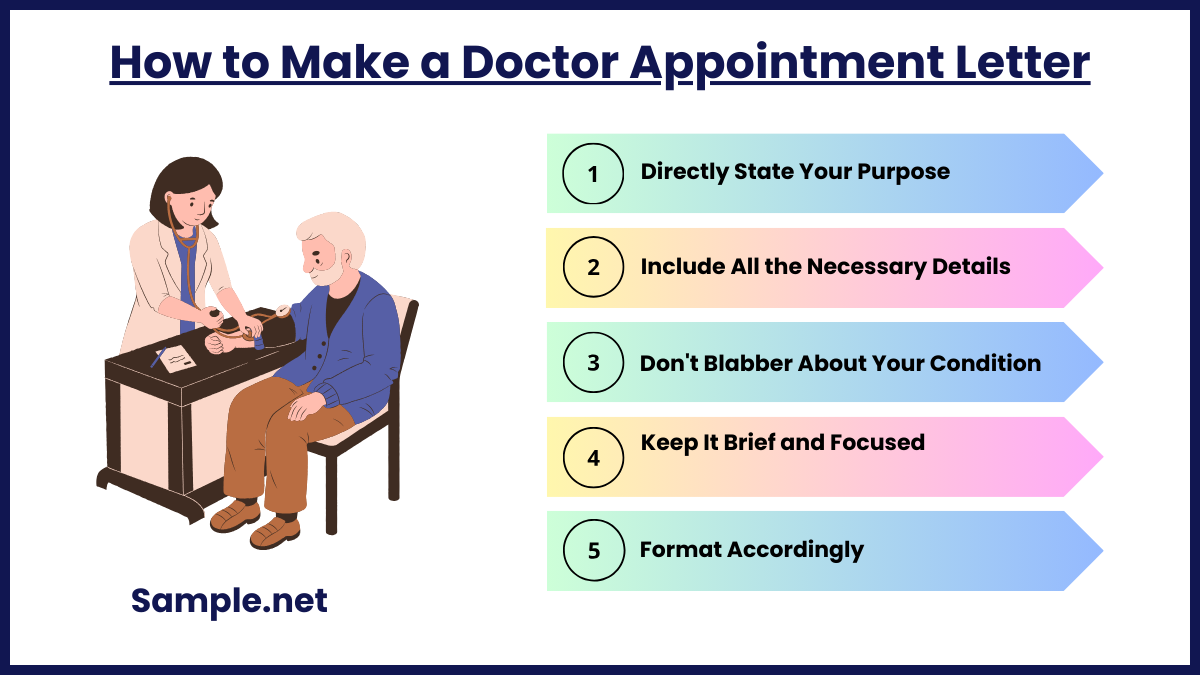
When you attempt to make an appointment or set a meeting with a doctor that you like, an appointment letter is an excellent first step to take. But how do you know you’re writing the right letter content? Read the guidelines below:
Step 1: Directly State Your Purpose
When you write a doctor’s appointment letter, you must know firsthand what message you want to send and hit it right on. There’s no need for a quick detour or a short introductory statement. The first part of your letter should directly address the purpose of why you’re writing the letter in the first place. As a patient, do you want to gather information about a doctor’s schedule, or are you informing your doctor’s office of your absence during the said schedule? If you’re the doctor or someone from the doctor’s office, are you writing regarding a rescheduling matter, or do you want to move the appointment at a later time or date? Being direct with your motive makes it easier for whoever will receive your letter to assess it.
Step 2: Include All the Necessary Details
Because it concerns an appointment, it’s no surprise that your letter should include an accurate account of the time and date, including the specification of the venue. In its way, an appointment letter is an informative notice because it contains all the relevant details regarding an appointment. However, the schedule and the location isn’t all there is when making it. On some occasions, a clinic may ask you to bring in your test results or any medical records when you show up for your appointment. That’s a piece of detail that needs to go on the letter content. Some hospitals would require you to have insurance, so you might want to mention that on your document as well briefly.
Step 3: Don’t Blabber About Your Condition
Your letter is not an extension of your doctor’s office, so keep your medical rants until your appointment. Provide only a brief overview of your condition in the letter, so your doctor will know what to expect when you visit. However, don’t begin narrating your condition in lengthy details. You’re only asking for an appointment, and including your medical history isn’t the right avenue for it. In most cases, a medical representative or an assistant will be the one to go through the letters and jot it down on a printable calendar. The doctor will only be able to know about your case the moment you come in.
Step 4: Keep It Brief and Focused
It doesn’t have to be long, nor should it be. Center your formal letter around the purpose and its corresponding details and be done with. A better way to keep it focused and brief is to list down every detail you need to make the letter. This includes the schedule and the venue, doctor’s name, documents required, and patient details, among others. Once you’ve completed the list, convert them into a letter, starting your introduction by stating your purpose. The key is to be objective and to keep only what’s necessary.
Step 5: Format Accordingly
It’s important that your letter looks professional and well-formatted, especially if you’re a doctor or if it’s coming from a clinic or a doctor’s office. An appointment letter is a business letter. While it’s not good to associate health care service as a “business”, it works the same way when you’re meeting with a client. And in business, documents are not just documents. They represent your brand’s image. Follow proper formatting and use your establishment’s official company letterhead. More than raising the aesthetic of your document, they represent your brand’s integrity and value.
A Doctor Appointment Letter plays a vital role in maintaining clarity and organization in healthcare. It confirms appointment details, reducing potential misunderstandings. Drafting it carefully ensures effective medical communication, benefiting both patients and doctors by streamlining schedules and managing time efficiently. You can also see more on Prescription Samples.
FAQs
What time is ideal for making a doctor’s appointment?
When you’re debating what time to put on your doctor’s appointment, the best time should be in the morning or the hour after lunch, because doctors could get swamped or too tired to hear you in the afternoon and scheduling close to the evening might be a busy time.
How many hours before the appointment is it reasonable to make a cancellation?
Canceling a doctor’s appointment abruptly might cost some charges. You can call and cancel a day or two before the actual date with a valid reason.
Can you use your doctor appointment letter to get out of work?
It can work, as long as it’s intended for that purpose. As an example, your workplace sample policy may demand documentation that you indeed visited a doctor. You can ask your physician for an appointment letter that attests that you have indeed visited your doctor.
